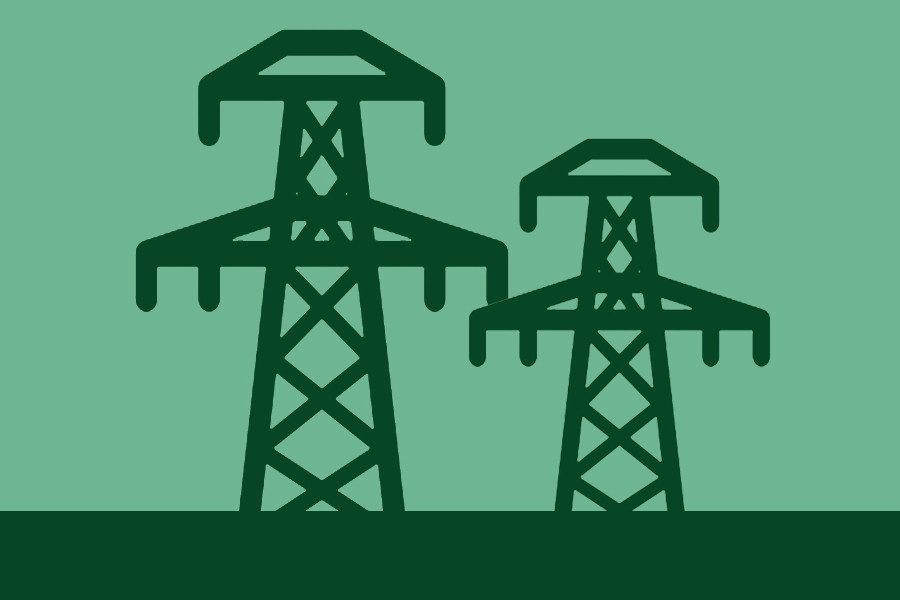
Published :
Updated :

Subscribers should brace for yet higher electric bills as the government considers raising power price again in October on grounds of subsidy cut-down and saving the country's foreign-exchange reserves from further depletion.
Higher cost of primary fuel imports amid global price spirals is a major head of foreign-currency spending that weighs on Bangladesh's reserves, as also on other countries', as a fallout from the pandemic and war.
Sources say the country's energy regulator is set to raise bulk electricity tariffs by early October on completion of evaluation of the feedbacks from stakeholders gathered during public hearings in May.
"The verdict on the bulk power-tariff hike might come within late September or early October," Bangladesh Energy Regulatory Commission (BERC) Chairman Md Abdul Jalil said during a virtual meeting Tuesday.
The commission chairman, however, wouldn't tell the extent of hike to be announced during the verdict.
State-run Bangladesh Power Development Board (BPDB) sought around a 66-percent hike in bulk electricity tariffs on the pretext of BERC's raising of natural gas tariffs and hike in oil prices on the international market.
The BERC hiked natural gas tariffs by 22.78 per cent on average with effect from June 2022 following public hearings.
The new weighted average natural gas tariff is now Tk 11.91 per cubic metre in a rise from previous Tk 9.70.
Bangladesh's apex trade body and rights groups, however, had opposed the power tariff-hike proposal of the BPDB and demanded keeping the current prices unchanged.
"It will be suicidal for the government if the bulk tariff is raised now," senior vice president of the Federation of Bangladesh Chambers of Commerce and Industry (FBCCI) Mostofa Azad Chowdhury Babu had said at the public hearing.
Consumers Association of Bangladesh (CAB) had demanded import of all sorts of petroleum products by state-run Bangladesh Petroleum Corporation (BPC) discontinuing oil-import permission to private sector as a cost-cutting measure.
CAB energy adviser Prof M Shamsul Alam also had demanded runing state-run combined-cycled power plants with around 67-percent plant factor instead of current 53 per cent to reduce electricity-generation costs.
The BPDB in its proposal had sought to hike bulk tariffs by around 66 per cent to Tk 8.58 per unit (1 kilowatt-hour) from Tk 5.17 per unit in the event of unavailability of subsidy from the government.
BERC's technical evaluation committee had suggested the hike by 57.83 per cent without any provision of government subsidy.
Speaking in the public-hearing session the FBCCI leader had argued that the tariff-hike proposal by the BPDB was faulty as it did not maintain the BERC rules properly.
Natural gas supplies to privately-owned captive power plants were maintained limiting or ceasing gas supplies to gas-guzzling commercially run power plants, which has increased overall electricity-generation costs, he had said while presenting the FBCCI's stance over the tariff hike proposal.
Imposition of import duties and taxes on furnace oil since June 2020 and 5.0-percent value-added tax (VAT) on coal increased overall electricity-generation costs, said Mr Azad.
Several issues like excess electricity-generation capacity, oil-fired power plants, delay in commissioning coal-fired power plants, wrong planning over liquefied natural gas (LNG) supply chain are also among the bottlenecks in the power sector, he added.
The CAB leader demanded proper utilization of power development fund (PDF) and streamlining investment from the fund in BPDB's gas- based and-renewable energy projects.
The BPDB in its proposal to the BERC argued that it would have a deficit of around Tk 302.51 billion in 2022 if the bulk electricity tariffs were not hiked, stating that its electricity-purchase cost of around 88.99 billion units of electricity would soar to around Tk 741.89 billion and sale price would be around Tk 439.37 billion.
It claimed that the imposition of import duties and tax on furnace oil since June 2020 increased tax-related costs for electricity generation by around 34 per cent.
The imposition of 5.0-percent VAT on coal and soaring prices of coal on the international market have increased electricity-generation costs in coal-fired power plants, the BPDB stated in its proposal.
Per-unit (1-kilowatt-hour) energy cost to generate electricity soared by 48.35 per cent to Tk 3.16 in fiscal year (FY) 2020-2021 from Tk 2.13 unit of FY'20, the country's lone buyer of electricity from power producers - BPDB - argued.
Electricity-generation costs per unit might escalate further to around Tk 4.48 per unit in FY '22 with soaring global oil, coal and LNG prices, it feared.
Country's achieving cent-percent electrification increased electricity-generation costs by Tk 0.05 per unit as the number of low-cost electricity consumers soared as a consequence, the BPDB argued.
Meanwhile, the government is executing austerity measures like electricity load-shedding and squeezing imports and restricting foreign tours in a bid to mitigate pressures on the country's forex reserves in the wake of a global crunch.
Azizjst@yahoo.com


 For all latest news, follow The Financial Express Google News channel.
For all latest news, follow The Financial Express Google News channel.